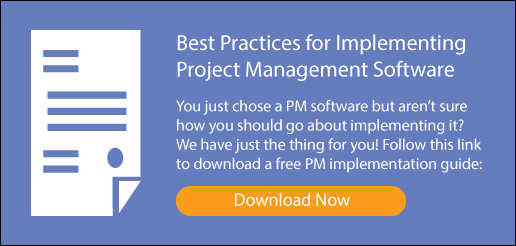We wrote an article a while back listing 5 effective project management methodologies and when to use them. But project management is a vast and ever-expanding field, and you shouldn′t be limited to just five options. So here are five more project management methodologies for you to consider:
Scrum Methodology
Scrum is an iterative project management methodology that thrives in situations where requirements constantly shift. Scrum delivers products in short cycles that allow for quick feedback and a rapid response to change. Teams work off of time units called “sprints” , which can range from a week to a month. Each spring must end in a usable product. Sprint also emphasizes a strong team dynamic, with regular and close collaboration between team members, and the lack of a traditional project manager.
Spiral Project Management
A long-term iterative project management process, the Spiral Method arranges activities in a spiral pattern, each “loop” is divided into four development phases:
- Analysis
- Risk evaluation
- Execution
- Planning
Each loop involves multiple review processes. A project often goes through multiple loops before the product is finally released. Because there′s such a heavy emphasis on risk analysis and planning, the Spiral method is ideal for high-risk projects, or projects in highly volatile markets.
Lean Project Management Method
An offshoot of lean manufacturing, lean project management focuses on delivering more value with less waste in the project environment. It accomplishes this by empowering people and creating an environment of self-accountability. It also relies more heavily on process than some other methodologies, especially the concepts of standardization and work breakdown structure, which can help streamline team workflows.
Lean Project Management is often used by project managers operating under budget cuts or other constraints, although the principles can potentially benefit any type of project.
Rational Unified Process
Rational Unified Process (RUP) is an iterative software development methodology from Rational, a division of IBM. RUP divides the project lifecycle into four phases, and further organizes tasks into nine distinct disciplines. Although the four-phase format can be similar to Waterfall, each phase is further subdivided into separate iterations:
- Inception
- Elaboration
- Construction
- Transition
Each phase must be successfully accomplished before the next phase can take place. Project teams can select which RUP elements fit their needs and can tailor their approach accordingly.
Event Chain Methodology
Unlike other project management methodologies that focus on tasks, the Event Chain Methodology focuses on events and schedules. It′s a project scheduling technique that maps out uncertainty and risk in a project, and statistically estimates the impact that events will have””even external ones. Projects are able to mitigate negative effects of critical events or event chains once they′ve been identified.
Follow us


